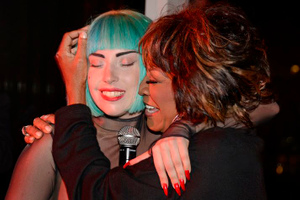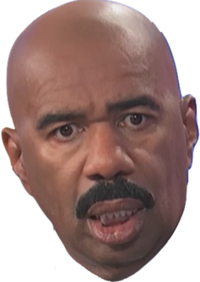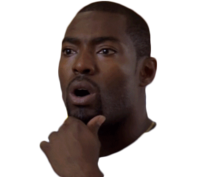 Saturday 💣Apr 1, 2022
Saturday 💣Apr 1, 2022 hysteric gamer
hysteric gamerwhere is our sister
 Saturday 💣Apr 16, 2022
Saturday 💣Apr 16, 2022 Saturday 💣Apr 17, 2022
Saturday 💣Apr 17, 2022Again, a program that combines timeless figures and artists in an age-appropriate way. Montreux Jazz Festival announces symbolic headlines in its 56th edition, its first regular version in three years. From Diana Ross to Nick Cave & The Bad Seeds, Jeff Beck to Herbie Hancock, Robert Plant to Dutronc father and son, a-ha to Björk. A rare and anticipated diva, but on a more adventurous pop record, Icelandic Björk is back twenty-four years after a notable transition. Accompanied by Sinfonietta de Lausanne, the singer who will revisit her hybrid repertoire with a classical orchestra should also taste her tenth album in preparation.
 Saturday 💣Apr 17, 2022
Saturday 💣Apr 17, 2022New single by July?

 Saturday 💣Apr 27, 2022
Saturday 💣Apr 27, 2022 Saturday 💣Jul 8, 2022·3 replies
Saturday 💣Jul 8, 2022·3 replies Saturday 💣Aug 19, 2022·2 replies
Saturday 💣Aug 19, 2022·2 replies Saturday 💣Aug 19, 2022
Saturday 💣Aug 19, 2022Fossora
 Saturday 💣Aug 19, 2022
Saturday 💣Aug 19, 2022 Saturday
Saturdayhttps://twitter.com/hasitleaked/status/1545162167225303041

Fossora will be released this autumn on One Little Independent Records.
 Saturday 💣Aug 19, 2022
Saturday 💣Aug 19, 2022 Saturday
Saturday@massive
I’ll try and copy paste all the album details, there’s so much in here omg
Her new album is called Fossora, the feminine version of the Latin word for digger. On the cover, she is a glowing forest sprite, her fingertips fusing with the fantastic fungi under her hooves. Compared with the cloudy electronics of 2017’s Utopia, it is organic and spacious, earthbound rather than dreamy, and filled with warmth and breath. It is also a world of contrasts: the album’s two lodestones are bass clarinet and violent outbursts of gabber. There are moments of astonishing virtuosity and bewildering complexity and, like much of her recent music, a resistance to easy melody. Björk’s journey from 90s dance-pop to something more like surreal opera has more in common with Scott Walker’s graceful trajectory than those of 90s peers such as PJ Harvey.
Like all Björk albums, Fossora is a reaction to its predecessor. Soft and light as candyfloss, Utopia was a “survival mechanism out of the heartbreak story” she had told on 2015’s Vulnicura, which diarised her split from the artist Matthew Barney in blow-by-blow bleakness. What she calls the “emergency” album and “the rescue album” popped out like airbags, with barely two years between them, despite the technical challenges Björk set herself (such as the four months it took to figure out the reverb on Utopia’s flutes).
This time, she decided to take as long as she needed and “allow myself the luxury of not having any willpower”. Lockdown made that easier. “I don’t think I’ve been that much home since I was 16. Guilty to admit it, but I was eating chocolate pudding every day,” she says with a grin. Usually, on trips back to Reykjavík, she wouldn’t even bother to unpack. This time, her empty suitcase went up on the shelf. “I got really grounded and I really, really loved it.”
Between the gabber eruptions, Fossora offers tender songs written for Björk’s mother, a poem by the 18th-century fisherwoman and drifter Látra-Björg, the buttery voice of Serpentwithfeet and backing vocals from Sindri, her son, and Doa, who lends a pristine, folky tone to Her Mother’s House. “I asked her to write about saying goodbye to the nest and said she didn’t have to just be nice,” she says, clearly proud. “It’s me making fun of myself for being a bit clingy.”
Despite hyping Fossora as an album for “people who are making clubs in their living room”, rumours of Björk’s rave album have been greatly exaggerated. “I was trying to take the mickey out of myself,” she says with a sigh, her accent still a jolly mixture of Nordic rolled Rs and cockney slang. “Here I am, this lady stuck in my living room in lockdown, and it’s a really serious song for four and a half minutes. And then it’s one minute of” – she bolts up from her chair and starts pumping her arms to a silent beat – “WOO!”
She gives me a visual description of Fossora. If Utopia was a magical retreat from the black lake of misery she plunged into on Vulnicura (“pull all the teeth out, no violence – like a pacifist, idealistic album with flutes and synths and birds”), then Fossora shows life in this dreamland. “Let’s see what it’s like when you walk into this fantasy and, you know, have a lunch and farrrrt” – another gleefully rolled R – “and do normal things, like meet your friends.”
This earthiness is trowelled by the album’s sextet of bass clarinets, an instrument chosen not for its gloominess, as in Mahler’s 6th Symphony, nor its smoky luxury, like Bennie Maupin’s playing on Miles Davis’s B****es Brew, but for its potential as percussive artillery. Björk wanted them to sound “like Public Enemy, like duh-duh-duh-duh, like boxing”, she chirps, before squatting in demonstration of the metre-long instrument’s heavyweight attack.
Then there is the hard techno. On heavy rotation at Björk’s living room parties were Gabber Modus Operandi, two Indonesian punks who alloy folk styles such as Balinese gamelan with abrasive western gabber, footwork and noise. “They’re taking tradition into the 21st century, which I really respect. They do it like nobody else,” Björk says.
She had a feeling they would be on the same wavelength. When Ican Harem and DJ Kasimyn first spoke to her over a video call, she explained she was making her “mushroom album. It’s like digging a hole in the ground. This time around, I’m living with moles and really grounding myself. I don’t know if that’s too far-fetched for you guys, but I have to speak in this sort of music lingo,’” she told them. “And they were like: ‘Oh, it’s funny you say that, but last week we took some gamelan drums and dug them in the ground and played them there and recorded it. So, yes, we know what you mean.’” She laughs. “Literally! I was just talking metaphorically!” The duo emailed her beats, which she painstakingly edited into Fossora’s fiddly time signatures, resulting in blasts of what the trio call “biological techno” (also the name of their WhatsApp group chat).
Two songs, Sorrowful Soil and Ancestress, are tributes to Björk’s mother, who divorced her husband, an electrician and trade unionist, when Björk was a baby and went to live in a commune of Hendrix-loving hippies. Having trained in alternative medicine, she wasn’t happy to be surrounded by white coats when she got ill towards the end of her life. “She didn’t agree with all that,” says Björk. “She was in the hospital a lot and it was really difficult on her. It was quite a struggle.”
Björk is steely as she recounts those distressing couple of years in and out of hospital. Her lyrics, too, are stark in their grief: “The machine of her breathed all night while she rested / Revealed her resilience / And then it didn’t,” she sings over leaping strings and gongs on Ancestress. Hildur Rúna was 72 when she died. “That’s quite early. I think me and my brother were not ready to … we thought she had 10 years left. So we were like: ‘Come on,’ and getting her to fight and … and it was like she had an inner clock in her and she was just ready to go.”
In her own world, Björk remains in control, leading orchestras and choirs of increasing size (52 singers at last count) and collaborating with her pick of musicians and designers. Yet, at heart, she is still a freewheeling romantic, a “fountain of blood in the shape of a girl”, as she sang 25 years ago on Bachelorette. “I feel, as a singer-songwriter, my role is to express the journey of my body or my soul or whatever, and hopefully I will do that till I’m 85, or however long I live. I try to keep the antennas up and read where my body is at.”
As is obvious from the songs Atopos and Fungal City (“His vitality repolarises me / My north/south shifts to east/west”) Fossora is an “in love” album – but there are two different love objects at play, she winks, refusing to say more. I suggest that her relationship songs often read like confrontations, punctuated by the sort of difficult questions one regrets asking too late at night. On Atopos, she quizzes: “Are these not just excuses to not connect?” No, she says after a moment’s thought – it is the other way around. “Sometimes, when I really love someone, I will have an interrogation lyric and it’s disguised as my doubts, because I want to be nice – but it’s actually their doubts.”
 sfsorrow
sfsorrowI’ll try and copy paste all the album details, there’s so much in here omg
Her new album is called Fossora, the feminine version of the Latin word for digger. On the cover, she is a glowing forest sprite, her fingertips fusing with the fantastic fungi under her hooves. Compared with the cloudy electronics of 2017’s Utopia, it is organic and spacious, earthbound rather than dreamy, and filled with warmth and breath. It is also a world of contrasts: the album’s two lodestones are bass clarinet and violent outbursts of gabber. There are moments of astonishing virtuosity and bewildering complexity and, like much of her recent music, a resistance to easy melody. Björk’s journey from 90s dance-pop to something more like surreal opera has more in common with Scott Walker’s graceful trajectory than those of 90s peers such as PJ Harvey.
Like all Björk albums, Fossora is a reaction to its predecessor. Soft and light as candyfloss, Utopia was a “survival mechanism out of the heartbreak story” she had told on 2015’s Vulnicura, which diarised her split from the artist Matthew Barney in blow-by-blow bleakness. What she calls the “emergency” album and “the rescue album” popped out like airbags, with barely two years between them, despite the technical challenges Björk set herself (such as the four months it took to figure out the reverb on Utopia’s flutes).
This time, she decided to take as long as she needed and “allow myself the luxury of not having any willpower”. Lockdown made that easier. “I don’t think I’ve been that much home since I was 16. Guilty to admit it, but I was eating chocolate pudding every day,” she says with a grin. Usually, on trips back to Reykjavík, she wouldn’t even bother to unpack. This time, her empty suitcase went up on the shelf. “I got really grounded and I really, really loved it.”
Between the gabber eruptions, Fossora offers tender songs written for Björk’s mother, a poem by the 18th-century fisherwoman and drifter Látra-Björg, the buttery voice of Serpentwithfeet and backing vocals from Sindri, her son, and Doa, who lends a pristine, folky tone to Her Mother’s House. “I asked her to write about saying goodbye to the nest and said she didn’t have to just be nice,” she says, clearly proud. “It’s me making fun of myself for being a bit clingy.”
Despite hyping Fossora as an album for “people who are making clubs in their living room”, rumours of Björk’s rave album have been greatly exaggerated. “I was trying to take the mickey out of myself,” she says with a sigh, her accent still a jolly mixture of Nordic rolled Rs and cockney slang. “Here I am, this lady stuck in my living room in lockdown, and it’s a really serious song for four and a half minutes. And then it’s one minute of” – she bolts up from her chair and starts pumping her arms to a silent beat – “WOO!”
She gives me a visual description of Fossora. If Utopia was a magical retreat from the black lake of misery she plunged into on Vulnicura (“pull all the teeth out, no violence – like a pacifist, idealistic album with flutes and synths and birds”), then Fossora shows life in this dreamland. “Let’s see what it’s like when you walk into this fantasy and, you know, have a lunch and farrrrt” – another gleefully rolled R – “and do normal things, like meet your friends.”
This earthiness is trowelled by the album’s sextet of bass clarinets, an instrument chosen not for its gloominess, as in Mahler’s 6th Symphony, nor its smoky luxury, like Bennie Maupin’s playing on Miles Davis’s B****es Brew, but for its potential as percussive artillery. Björk wanted them to sound “like Public Enemy, like duh-duh-duh-duh, like boxing”, she chirps, before squatting in demonstration of the metre-long instrument’s heavyweight attack.
Then there is the hard techno. On heavy rotation at Björk’s living room parties were Gabber Modus Operandi, two Indonesian punks who alloy folk styles such as Balinese gamelan with abrasive western gabber, footwork and noise. “They’re taking tradition into the 21st century, which I really respect. They do it like nobody else,” Björk says.
She had a feeling they would be on the same wavelength. When Ican Harem and DJ Kasimyn first spoke to her over a video call, she explained she was making her “mushroom album. It’s like digging a hole in the ground. This time around, I’m living with moles and really grounding myself. I don’t know if that’s too far-fetched for you guys, but I have to speak in this sort of music lingo,’” she told them. “And they were like: ‘Oh, it’s funny you say that, but last week we took some gamelan drums and dug them in the ground and played them there and recorded it. So, yes, we know what you mean.’” She laughs. “Literally! I was just talking metaphorically!” The duo emailed her beats, which she painstakingly edited into Fossora’s fiddly time signatures, resulting in blasts of what the trio call “biological techno” (also the name of their WhatsApp group chat).
Two songs, Sorrowful Soil and Ancestress, are tributes to Björk’s mother, who divorced her husband, an electrician and trade unionist, when Björk was a baby and went to live in a commune of Hendrix-loving hippies. Having trained in alternative medicine, she wasn’t happy to be surrounded by white coats when she got ill towards the end of her life. “She didn’t agree with all that,” says Björk. “She was in the hospital a lot and it was really difficult on her. It was quite a struggle.”
Björk is steely as she recounts those distressing couple of years in and out of hospital. Her lyrics, too, are stark in their grief: “The machine of her breathed all night while she rested / Revealed her resilience / And then it didn’t,” she sings over leaping strings and gongs on Ancestress. Hildur Rúna was 72 when she died. “That’s quite early. I think me and my brother were not ready to … we thought she had 10 years left. So we were like: ‘Come on,’ and getting her to fight and … and it was like she had an inner clock in her and she was just ready to go.”
In her own world, Björk remains in control, leading orchestras and choirs of increasing size (52 singers at last count) and collaborating with her pick of musicians and designers. Yet, at heart, she is still a freewheeling romantic, a “fountain of blood in the shape of a girl”, as she sang 25 years ago on Bachelorette. “I feel, as a singer-songwriter, my role is to express the journey of my body or my soul or whatever, and hopefully I will do that till I’m 85, or however long I live. I try to keep the antennas up and read where my body is at.”
As is obvious from the songs Atopos and Fungal City (“His vitality repolarises me / My north/south shifts to east/west”) Fossora is an “in love” album – but there are two different love objects at play, she winks, refusing to say more. I suggest that her relationship songs often read like confrontations, punctuated by the sort of difficult questions one regrets asking too late at night. On Atopos, she quizzes: “Are these not just excuses to not connect?” No, she says after a moment’s thought – it is the other way around. “Sometimes, when I really love someone, I will have an interrogation lyric and it’s disguised as my doubts, because I want to be nice – but it’s actually their doubts.”
Can’t wait until she tours
 Saturday 💣Aug 22, 2022
Saturday 💣Aug 22, 2022






